
Debu Tripathy, MD, chair of the Department of Breast Medical Oncology at University of Texas MD Anderson Cancer Center, discusses genetic risk for breast cancer, the strongest factor in determining if an individual will develop the disease.

Debu Tripathy, MD, chair of the Department of Breast Medical Oncology at University of Texas MD Anderson Cancer Center, discusses genetic risk for breast cancer, the strongest factor in determining if an individual will develop the disease.
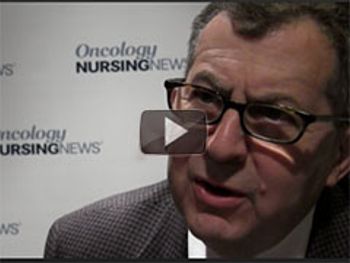
Hyman B. Muss, MD, professor of medicine at the University of North Carolina School of Medicine, discusses the vital roles that nurses play when it comes to treating pregnant women with breast cancer.
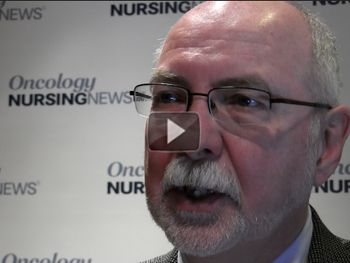
Kevin Hughes, MD, breast surgeon at Massachusetts General Hospital, discusses misconceptions regarding dense breast tissue and risk for breast cancer.
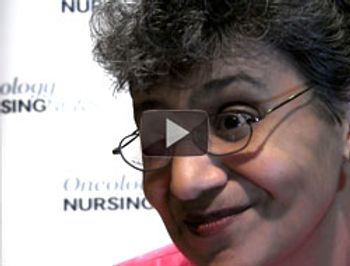
Anees B. Chagpar, MD, MSc, MA, MPH, discusses the role of nurses in the decision making process for breast cancer care.
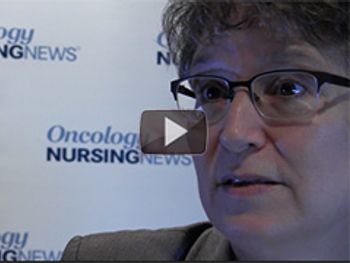
Kimberly J. Van Zee, MS, MD, FACS, attending surgeon at Memorial Sloan Kettering Cancer Center, discusses the institution's newly-developed nomogram that can help women make treatment decisions about ductal carcinoma in situ (DCIS).

Amelie Harle, an oncologist at Christie Hospital in Manchester, United Kingdom, discusses the possibility of using aprepitant (Emend) to treat cough in patients with lung cancer.
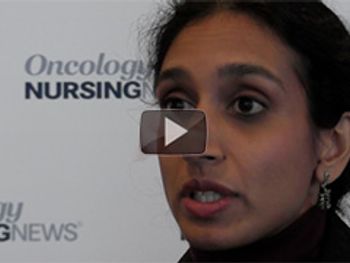
Kavita Dharmarajan, MD, MSc, assistant professor of radiation oncology and palliative medicine at the Icahn School of Medicine at Mount Sinai Hospital, discusses how patients benefit when healthcare providers look at the “whole picture” in advanced stage cancer treatment.
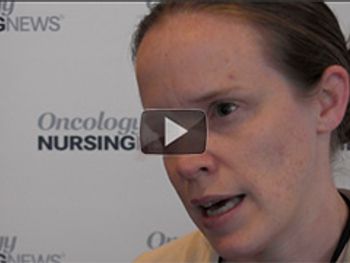
Carolyn Lefkowits, MD, MPH, MS, assistant professor, University of Colorado Denver, discusses concerns women with gynecologic cancer have regarding their prognosis.
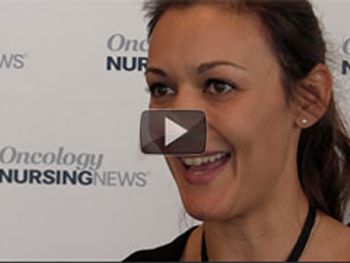
Kathrin Milbury, PhD, assistant professor of Integrative Medicine Research at The University of Texas MD Anderson Cancer Center, discusses the importance of spouse and caregiver self care when tending to someone with lung cancer.
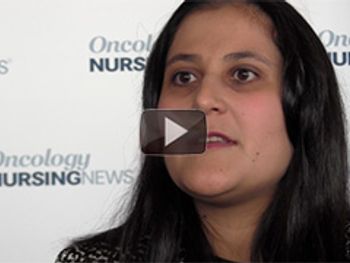
Areej El-Jawahri, MD, an oncologist at Massachusetts General Hospital, discusses how patients with cancer do not often have a full understanding of the terms and processes doctors describe during treatment.
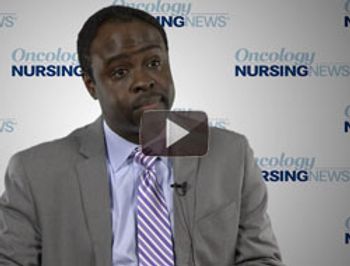
Joseph Ravenell, MD, MS, from NYU Langone Medical Center, discusses access to screening among black men.
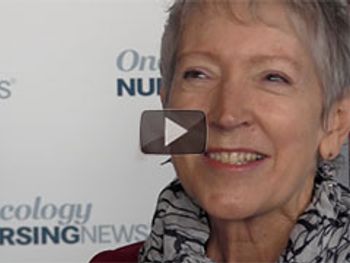
Kathy Jo Gutgsell, RN, MT-BC, music therapist at University Hospitals Seidman Cancer Center talks about how music can help patients with cancer.

Rajni Kannan, BS, MS, RN, ANP-BC, discusses some risk factors for melanoma that may not be widely known.

Kathleen M. Madden, MSN, FNP-BC, AOCNP®, provides an overview of treatment of melanoma with new targeted therapies.
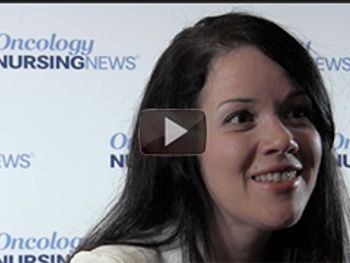
Women under 40 who find a suspicious lump in their breast often have their cancer fears dismissed and are told “you are too young for breast cancer,” according to Megan McCann, associate director of programs at the Young Survival Coalition. Here, she discusses breaking down that misconception that younger women can’t get breast cancer.
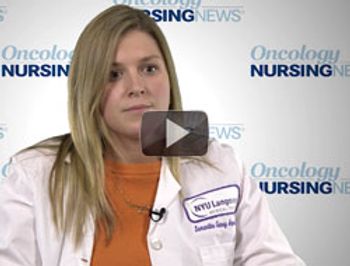
Samantha Ganey Aquino, MSN, AGPCNP-BC, discusses pain management for patients with cancer.
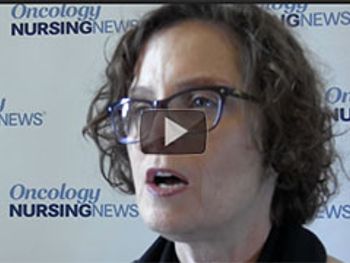
Jan Lewin, PhD, section chief of Speech Pathology and Audiology at The University of Texas MD Anderson Cancer Center, discusses the two different types of lymphedema and the importance of getting treated.
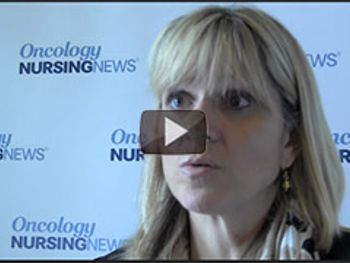
While eating during treatment for head and neck cancer may be uncomfortable, Giselle Carnaby, PhD, MPH, CCC-SLP, ASHA fellow and professor at University of Central Florida College of Health and Public Affairs, emphasizes that it is vitally important.
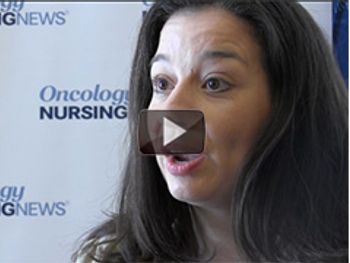
Maria Cabanillas, MD, explains that for people who are newly diagnosed with thyroid cancer, it is imperative that they know all the details about their cancer before heading into surgery.
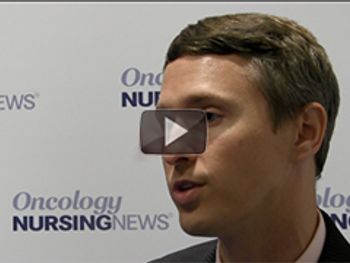
After leading a study that patients with acute myeloid leukemia who receive induction chemotherapy are quite distressed, Tom LeBlanc, hematologic malignancy specialist at Duke Cancer Institute, decided more palliative care should be offered alongside treatment for the disease.
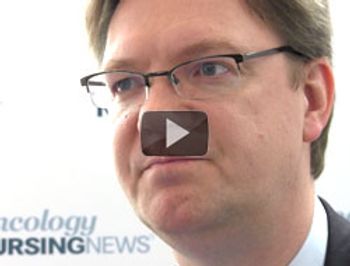
Robert Andtbacka, MD, from University of Utah School of Medicine, discusses the management of side effects from T-VEC.
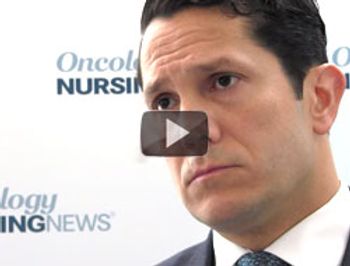
Mario E. Lacouture, MD, discusses the psychosocial impact of dermatologic adverse events from novel therapies in melanoma.
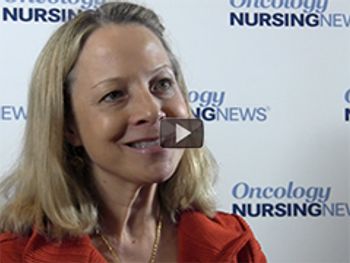
After being diagnosed with breast cancer, Susan Rafte and her sister started The Pink Ribbons Project is a Houston-based nonprofit that provides surrounding communities with access to fundamental breast health services via awareness programs, fundraising events and community collaboration.
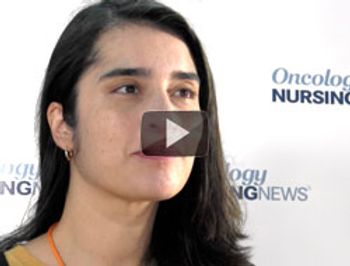
Paula Raska, a research associate from the Cleveland Clinic, discusses a study of patient navigation.
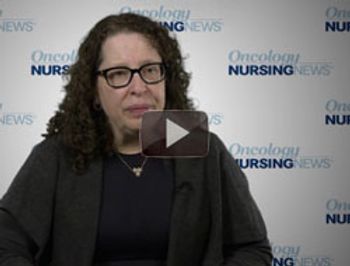
Freya R. Schnabel, MD, discusses the importance of choosing individualized treatment options for patients with breast cancer.
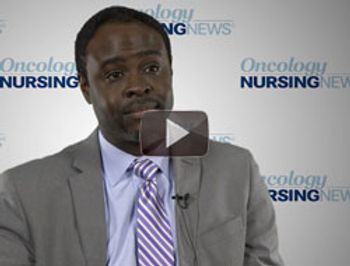
Joseph Ravenell, MD, MS, discusses some of the challenges with screening black men for colon cancer.
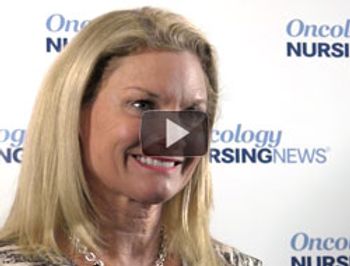
Holly Pederson, MD, discusses the unique contributions of nurses on her team.

Rajni Kannan discusses the role of nurses in skin cancer prevention education.

Samantha Ganey Aquino discusses results from a study of pain assessment.
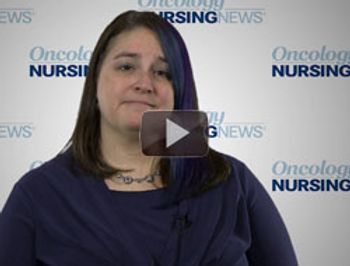
Kathleen M. Madden discusses the management of adverse events (AEs) with BRAF and MEK inhibitors for the treatment of patients with melanoma.